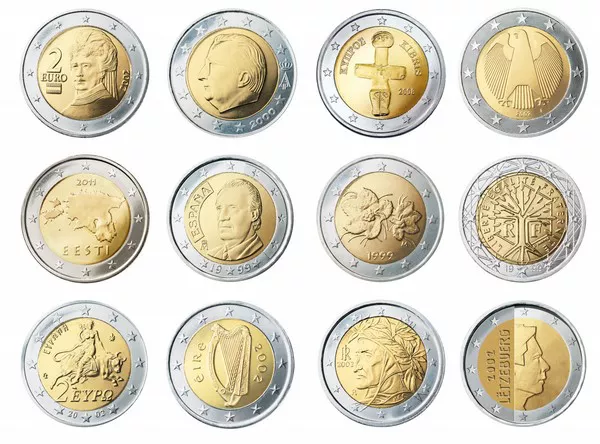The Euro, the currency used by 19 out of 27 European Union (EU) member states, has experienced significant fluctuations throughout its existence. Investors and economists alike closely monitor the currency’s performance to predict its future trajectory. This article aims to analyze various factors that exert influence on the Euro’s value and to provide insights into whether the Euro will continue to appreciate in the coming years.
1. Economic Fundamentals:
Economic fundamentals play a crucial role in determining a currency’s strength. Several key factors contribute to the Euro’s potential for growth:
GDP Growth:
Positive Gross Domestic Product (GDP) growth is often correlated with a strong currency. The Eurozone has demonstrated steady economic growth over the past few years, which can bolster the Euro’s value. However, external shocks such as global recessions or political uncertainties within the EU can impact economic growth and consequently the currency’s performance.
Interest Rates:
Interest rates set by central banks affect investment flows and exchange rates. Historically, higher interest rates tend to attract foreign investors seeking better returns, strengthening the currency. The European Central Bank’s (ECB) monetary policy decisions significantly influence the Euro’s value, making it essential to monitor any changes in interest rates.
Inflation:
Stable inflation rates are crucial for currency stability. The ECB closely monitors inflation levels and adjusts monetary policy accordingly. Higher inflation erodes the purchasing power of a currency, leading to depreciation. If the ECB successfully maintains low and stable inflation, it can contribute to the Euro’s ongoing strength.
2. Political Factors:
Political events and policies can have a substantial impact on currency valuations. Here are some key political considerations affecting the Euro’s outlook:
Brexit:
The United Kingdom’s withdrawal from the EU, known as Brexit, had a considerable impact on the Euro. Initially, the uncertainty surrounding Brexit negotiations led to Euro depreciation. However, as the negotiations progressed and a trade deal was reached, the Euro regained strength. Continued stability in EU-UK relations is crucial for maintaining the Euro’s upward trajectory.
EU Integration:
The level of political integration within the EU plays a vital role in determining the Euro’s future. Increased cooperation and fiscal integration among member states can boost confidence in the Euro as a stable currency. Conversely, tensions or disagreements within the EU could weigh on the currency’s performance.
3. Global Economic Factors:
Global economic developments can significantly influence currency movements. The Euro’s future depends on several key global factors:
US Dollar Performance:
The Euro and the US dollar (USD) are the two most prominent reserve currencies globally. The relative strength of the USD can impact the Euro’s value. A weakening dollar may lead to increased demand for the Euro as an alternative reserve currency, potentially driving its appreciation.
Trade Relations:
Trade relations between the Eurozone and major trading partners, such as the United States and China, can affect the Euro’s outlook. Trade disputes, tariffs, or imbalances can create uncertainties that may impact the currency’s performance. Smooth trade relations and robust export markets can contribute to the Euro’s continued strength.
4. Market Sentiment and Investor Behavior:
Market sentiment and investor confidence also play a significant role in determining currency movements:
Risk Appetite:
During times of heightened market volatility, investors often seek safe-haven currencies. The Euro has historically been considered a relatively stable currency. In uncertain times, investors may flock to the Euro, potentially leading to its appreciation.
Speculative Investments:
Currency markets attract speculative investments, including carry trades and short-term trading strategies. Such activities can create short-term fluctuations in the Euro’s value but are unlikely to determine its long-term trajectory. Monitoring market sentiment and understanding investor behavior is crucial for assessing the Euro’s future.
Conclusion:
Predicting the future direction of any currency, including the Euro, is inherently challenging. While various factors influence the Euro’s value, including economic fundamentals, political developments, global economic factors, and market sentiment, it is impossible to provide a definitive answer.
However, considering the Eurozone’s solid economic growth, stable inflation, and ongoing efforts toward political integration, the Euro may have the potential for further appreciation. Close monitoring of economic indicators, political events, and global economic factors will be vital in as


